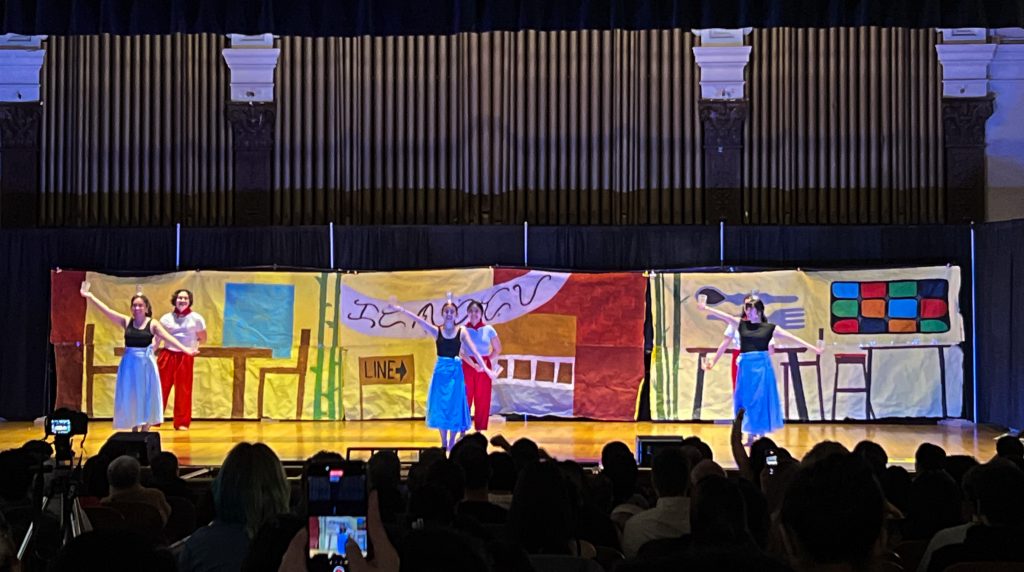
The Filipino Intercultural Society of Drexel University hosted its annual Barrio cultural celebration at the Drexel Main Building on May 4.
Barrio, FISDU’s longest-planned event of the year, hosts a communal dinner, play and dance performances to expose Drexel students to glimpses of Filipino culture and the Tagalog language in one night.
“We try to include as much Filipino culture as possible, anything from dances to the story itself, and we tend to include dinner with the performances as well. Before the show starts, we’ll host a dinner where guests will be able to enjoy an assortment [of] Filipino food,” said Nicolo Agbayani, a third-year computer science major and a Barrio co-chair.
According to Kai Thompson, a fourth-year marketing major and a Barrio co-chair, “We take a popular modern story and incorporate it into a theater performance with a Filipino twist.”
“This year, the theme is ‘Kung Fu Panda 3,’ but our take is Kali Panda, Kali being a Filipino martial art.”
Some dances featured in Kali Panda included Tinikling, a traditional Philippine dance, and Singkil, a tribal dance, as well as four modern dance routines.
“This performance to me is an amazing opportunity to spread Filipino culture to people that might otherwise not know about,” said Mikealani Perales, a second-year mechanical engineering major and FISDU’s secretary.
For the performances, FISDU offers any general body member the opportunity to participate in planning, preparing or performing in the massive cultural function, to symbolize the value of being in a community.
With any role in the play up for grabs, the FISDU Barrio committee faced challenges in solidifying an official cast roster as Barrio members sometimes became unreachable with the event’s planning spanning three quarters each year.
“[When it comes to] getting things confirmed and committed, I think a lot of people are hesitant to commit themselves to the amount of work that gets done, so it’s hard to get a good scope and timeline because commitment and availability shifts especially when people switch from class to co-op, sometimes people are gonna dance, but then they have to drop because [they] have to take a class that conflicts with dance practice, [so] you always be ready for change,” said Thompson.
With those challenges, the Barrio committee takes advantage of that hardship to capture the works in a documentary, shown during the play’s intermission, as well as comedic skits inspired by reality shows like ‘Single’s Inferno,’ performed aside from the main play.
“We also have a documentation committee, whose job is to document the Barrio process, as well as a public relations committee, who reach out to local businesses to help gather support for Barrio which wouldn’t be something you’d find in typical theater performance,” Thompson added.
FISDU’s take on putting on a communal cultural event in the form of Barrio has just as many uniqueness as challenges. However, the Barrio chairs leveraged that uniqueness and broke the mold of what a typical theater production can be, demonstrating more than one method to showcase a culture and FISDU’s community dynamics.
“Because there is so many different committees in Barrio and each of them have their own role part, first stepping into the role can be a little overwhelming, having to manage everything and make sure everything is on track, [from] making sure scripts are done on time so casts can get their recordings in, the dances are on track, the props are in production, [and] have everything properly documented to save for future years,” said Agbayani.
This article is part of a column dedicated to supporting underrepresented Asian student organizations on Drexel University’s campus.


